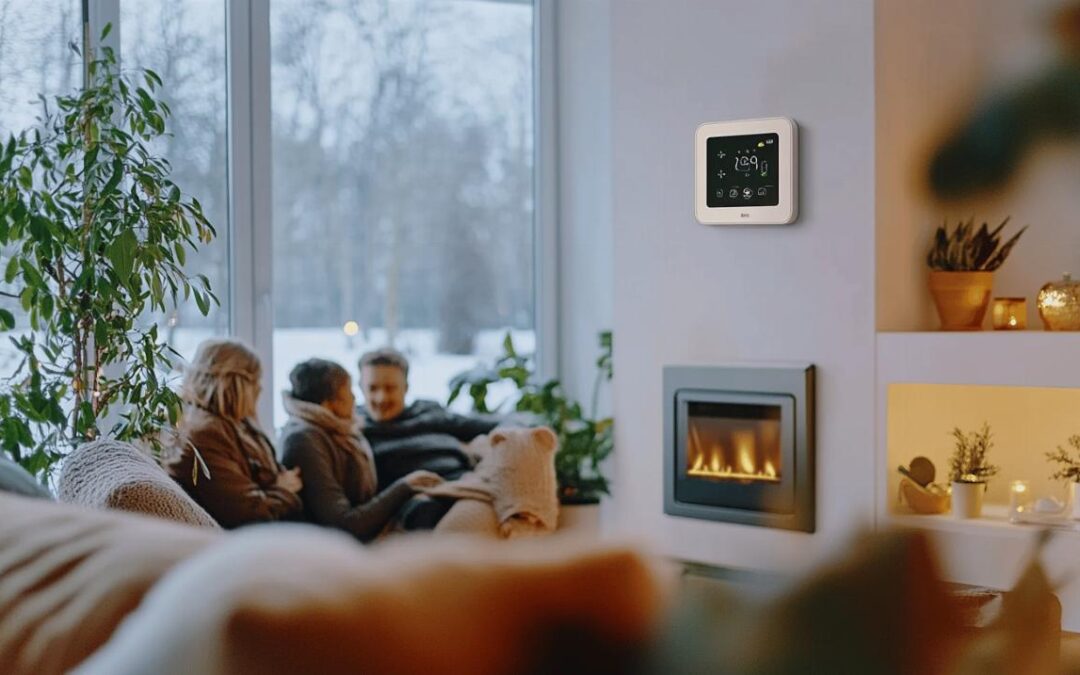Winter is coming, and for many UK homeowners, that means bracing for higher energy bills. Ensuring your home remains warm without breaking the bank requires thoughtful strategies and potentially some targeted investments. With energy costs continuing to rise, implementing efficient heating solutions is not just good for your wallet but also for the planet. Let's explore some practical approaches to keeping your home cosy while minimising energy consumption.
Proper home insulation techniques
Before considering any heating system upgrades, addressing your home's insulation should be your first priority. According to experts at Kamerolli Heating Solutions, proper insulation can reduce your heating requirements by up to 30%, making it one of the most cost-effective energy efficiency measures available to homeowners.
Loft and wall insulation benefits
Heat naturally rises, which means an uninsulated loft can account for approximately a quarter of your home's heat loss. Installing proper loft insulation creates a thermal barrier that keeps warm air inside your living spaces during winter months. Similarly, uninsulated walls can be responsible for up to a third of heat loss in a typical home. Cavity wall insulation or external wall insulation systems provide significant improvements in thermal retention, dramatically reducing the energy needed to maintain comfortable indoor temperatures.
Draught-proofing windows and doors
Even small gaps around windows and doors can lead to substantial heat loss. Effective draught-proofing measures such as weather stripping, door sweeps, and sealants can significantly reduce cold air infiltration. For older windows, consider secondary glazing or upgrading to double or triple glazing to improve thermal performance. Draught-excluders for letterboxes and keyholes may seem minor, but collectively these small improvements contribute to meaningful energy savings and increased comfort throughout your home.
Upgrading your heating system
With over half of typical energy bills attributed to heating and hot water, investing in an efficient heating system makes sound financial sense. Modern systems not only consume less energy but also distribute heat more effectively throughout your home.
Modern energy-efficient boilers
If your boiler is more than 10 years old, replacing it with a modern condensing model could yield substantial savings. Upgrading from an older G-rated boiler to a new A-rated model with comprehensive heating controls can save approximately £420 annually in Great Britain and £500 in Northern Ireland. While the initial investment may seem substantial, the long-term operational savings often justify the cost. Modern systems also tend to heat homes more evenly and respond more quickly to temperature adjustments.
Regular maintenance and venting
Regular servicing ensures your heating system operates at peak efficiency. Annual boiler or heat pump maintenance by qualified professionals can prevent minor issues from developing into costly repairs while maintaining optimal performance. Additionally, bleeding radiators to remove trapped air improves heat distribution and system efficiency. When radiators have air pockets, they heat unevenly and require more energy to achieve the desired temperature. Simple maintenance tasks like keeping radiators clean and unblocked by furniture also improve overall system performance.
Smart heating controls
Technological advances have revolutionised how we can manage home heating systems, offering unprecedented control and insights that lead to significant energy savings.
Programmable thermostats and zoning
Installing a programmer, room thermostat, and thermostatic radiator valves can save approximately £110 yearly in Great Britain and £120 in Northern Ireland. These controls allow you to maintain different temperatures in various rooms, avoiding wasting energy heating unused spaces. Setting your main thermostat between 18°C and 21°C typically provides comfortable living conditions without excessive energy use. Even minor adjustments make a difference; reducing your thermostat from 22°C to 21°C can save around £90 per year in Great Britain.
Remote access and energy monitoring
Smart thermostats take heating control to another level by allowing remote management via smartphone apps. These systems learn your preferences and habits, automatically adjusting heating schedules for optimal efficiency. Many smart systems also provide detailed energy consumption data, helping you identify patterns and opportunities for further savings. Some advanced models can even detect open windows or when the house is unoccupied, automatically adjusting settings to prevent energy waste.
Renewable energy solutions
Transitioning to low carbon heating solutions offers dual benefits of reduced environmental impact and potential long-term cost savings, particularly as conventional energy prices continue to rise.
Solar heating options for uk homes
Despite the UK's reputation for cloudy weather, solar thermal systems can still make a significant contribution to domestic hot water needs. These systems use solar collectors to heat water directly, reducing the energy required from conventional heating systems. Additionally, photovoltaic solar panels can generate electricity to power electric heating solutions or heat pumps, creating an integrated renewable energy approach. The combination of solar power with efficient electric heating systems creates a pathway to significantly lower carbon emissions.
Heat pumps and biomass systems
Heat pumps extract warmth from the air, ground, or water sources, operating like refrigerators in reverse. They can deliver three to four units of heat for every unit of electricity consumed, making them remarkably efficient. Biomass systems burn wood pellets, chips, or logs to provide heating and hot water. While requiring more active management than other options, they offer a renewable alternative to fossil fuels and can be particularly suitable for rural properties off the gas grid. Both these technologies qualify for various government incentive programs, potentially offsetting installation costs.
Cost-effective heating habits
Beyond technological solutions, everyday behaviours and simple habits can contribute significantly to energy savings without compromising comfort.
Optimal temperature settings
Finding the right balance between comfort and efficiency often comes down to thoughtful temperature management. While individual preferences vary, most people find temperatures between 18°C and 21°C comfortable for living areas. Bedrooms can often be kept slightly cooler, around 16-18°C, which many find conducive to better sleep. Using thermostatic radiator valves allows for this kind of room-by-room temperature control, ensuring energy isn't wasted overheating certain spaces.
Timing your heating for maximum efficiency
Strategic timing of your heating system operation can yield substantial energy savings. Rather than keeping your heating on constantly, set it to activate half an hour before you wake up and turn off half an hour before bedtime. This approach takes advantage of residual heat while ensuring comfort when you need it most. Similarly, if your home is regularly unoccupied during certain hours, programming your heating system to reduce output during these periods can generate significant savings without any noticeable impact on comfort when you return.

